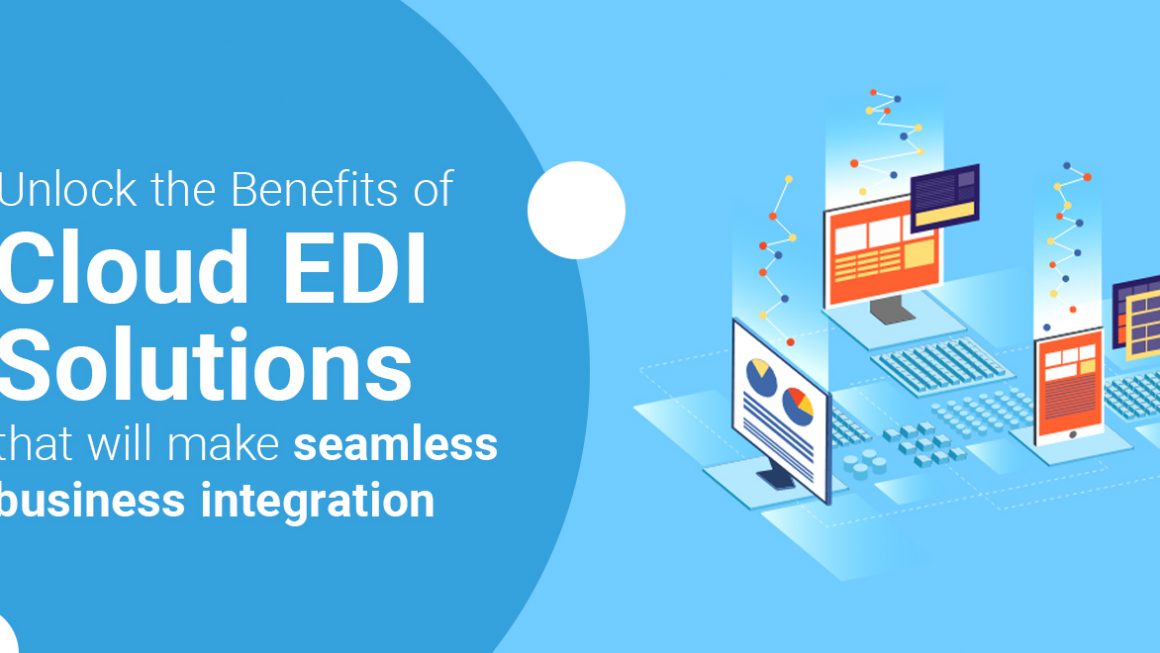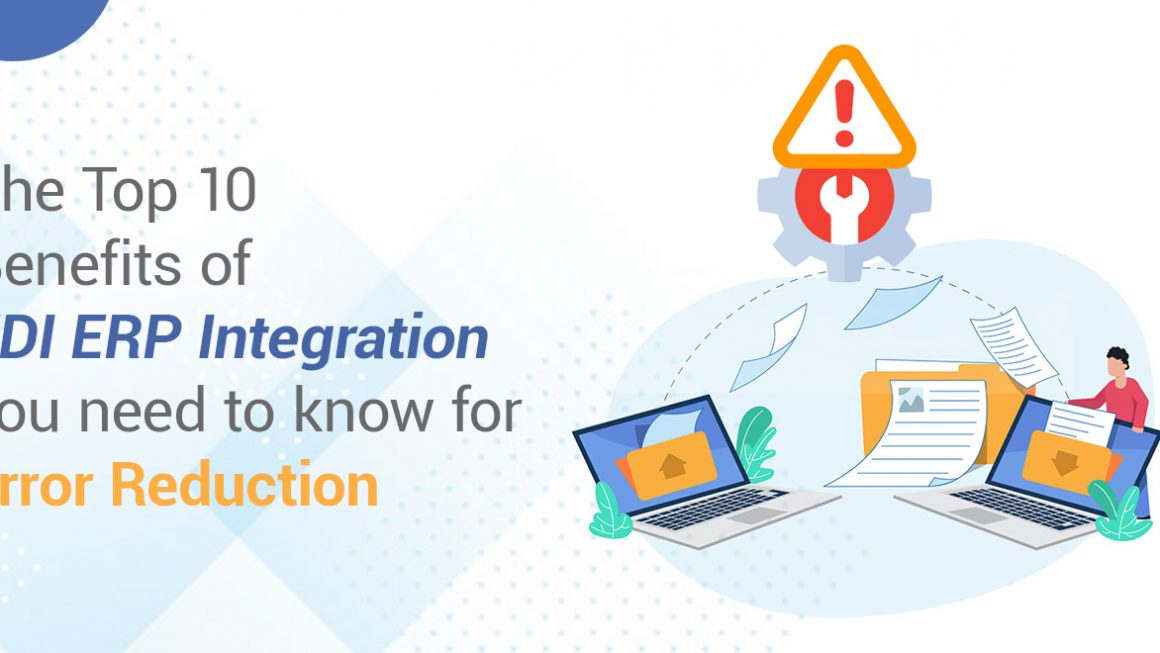With deep knowledge of EDI protocols and software, an EDI consultant creates, sets up, and manages systems. These systems greatly improve communication between trading partners. The consultant also offers ongoing EDI support services to ensure these systems remain effective and meet new business challenges.
Also, the guide offers tips on keeping and boosting your EDI solutions with a consultant’s help so your investment keeps paying off. You’ll get easy-to-understand explanations, examples, and expert advice that simplify EDI. These tips highlight the benefits of a well-set-up system.
What is Electronic Data Interchange (EDI)?
Electronic Data Interchange (EDI) allows businesses to send and receive business documents in a standard electronic format. It replaces old methods like mailing and faxing. This system lets companies directly share important documents such as purchase orders, invoices, shipping notices, and payment details between their computer systems.
EDI boosts business efficiency. It speeds up document processing and lowers mistakes from manual handling. For example, when you place an order through EDI, it automatically creates an invoice and updates stock levels, all without needing a person. This makes orders get processed and delivered faster, which keeps customers happy. An EDI consultant can tailor these processes to fit a company’s needs, enhancing department efficiency.
The Role of EDI Consultant in Modern Business
EDI is key not only for swapping data but also as a strategic business tool. It enables real-time information sharing, which is vital for quick decision-making and staying ahead in the market. EDI also helps businesses meet industry standards, avoid fines, and keep strong partnerships. As businesses expand, EDI can grow to handle more work without much extra cost. EDI consultants ensure these systems are part of a company’s broader strategy, helping achieve business goals effectively.
EDI enhances business operations and strengthens partner relationships. Reliable data exchange builds trust, leading to better cooperation and agreements.
With a properly set up EDI system, companies become more agile and responsive, qualities vital in today’s competitive environment. An EDI consultant provides the expertise needed to optimize these systems. Expert advice is valuable whether you are new to EDI or improving existing setups. It keeps the business current and ready for future challenges.
Why Hire an EDI Consultant?
Expertise and Knowledge That EDI Consultants Offer
Hiring an EDI consultant adds a high level of expertise and specialized knowledge. This can greatly streamline setting up and managing EDI systems. These professionals know much about EDI standards, how to blend them with existing systems, and the newest industry practices. An experienced EDI consultant can evaluate a company’s specific needs. They can then craft an EDI setup that aligns seamlessly with their business operations. They also train staff, ensuring the system is used well and effectively. The know-how of EDI consultants helps businesses get the most from their EDI investments. This leads to better data accuracy, quicker transaction handling, and improved partner relationships.
Cost-Benefit Analysis
Consider hiring an EDI consultant if you need to decide using a detailed cost-benefit analysis. Hire one when integrating EDI feels too complex for your team. It’s also smart to get help if mistakes in the setup could hurt your business. Consultants set up EDI systems correctly, avoiding big problems like data mistakes or problems combining systems. They can also improve your operations, quickly improving how things work and cutting costs. If your team can’t handle EDI’s challenges or you need to grow your business fast, consider EDI Consulting services.
EDI consultants are very helpful for businesses starting or improving their EDI systems. They are worth the money when the job is too big or complicated for your team to manage alone.
Choosing the Right EDI Consultant
Essential Qualities of an Effective EDI Consultant
Finding someone with the needed technical skills and key personal qualities is crucial when selecting an EDI consultant. A good EDI consultant must communicate complex details simply, making it easy for everyone to understand. They should also be great at solving problems quickly, as complete EDI Solutions can have unique challenges. Attention to detail is important because EDI handles critical data that must be accurate to keep business running smoothly. Lastly, adaptability is essential, as EDI technology and standards keep changing.
Credentials and Experience to Look for
An EDI consultant’s credentials and experience greatly impact the success of your EDI setup. Ideally, a consultant will have a strong IT background and specific training in EDI technology. Certifications from respected bodies like the Data Interchange Standards Association (DISA) show a consultant’s dedication and understanding of the field. It’s also helpful if the consultant has worked in various sectors or with EDI systems similar to yours, as they’ll likely foresee common issues and have ready solutions.
Preparing Your Business for EDI Consultation
Assessing Your Current EDI Capabilities
Before hiring an EDI consultant, assess your current electronic data interchange (EDI) capabilities. Review your existing EDI technology, the supported processes, and their efficiency. Check how reliable your setup is in terms of data accuracy, transaction speeds, and issue response. This will help spot any shortcomings that the consultant might need to address. Understanding your current EDI setup also provides a clear starting point for the consultant.
Setting Clear Goals for What You Want to Achieve
Once you know what your current EDI can do, make clear and specific goals for your EDI setup. These goals should be SMART, which means they’re specific, measurable, achievable, relevant, and time-bound. Examples of goals are reducing data entry mistakes, making transactions faster, or managing more complex EDI tasks. Having clear goals helps your consultant know what to focus on and lets you check how well your EDI projects are doing. This ensures the consultant’s work fits well with your business needs.
Aligning Your Team and Processes for EDI Implementation
It’s critical to align your team and processes for a successful EDI implementation. Make sure all relevant team members understand the goals and benefits. This might involve training staff for new EDI tasks and ensuring your IT setup supports the changes. Sometimes, business processes must be restructured to benefit from EDI fully. Starting with effective communication and engagement helps create a supportive environment for integrating new systems. An EDI consultant can offer guidance on best practices for training and adjusting processes.
Preparing your business for an EDI consultation is vital. It involves assessing current systems, setting clear goals, and aligning your team and processes. These steps lay the foundation for the EDI consultant to customize their strategies to your needs effectively. Proper preparation ensures a smooth transition and successful results from your EDI projects. With skilled, reliable electronic data interchange providers, your investment in EDI technology will support your business’s long-term success.
The Consultant’s Role in EDI Implementation
Key Responsibilities of an EDI Consultant
An EDI consultant is very important for setting up and improving EDI systems in a company. Their main job is to create an EDI solution that fits the company’s needs and how it needs to connect. They plan how data flows, ensure it works well with the existing systems, and set up safe and efficient communication methods with business partners. EDI consultants also test the system carefully to fix problems before it starts working. They train and help the company’s staff to ensure everyone can use the new systems well.
Common Strategies Used by Consultants to Enhance EDI Setups
EDI consultants use various strategies to improve the functionality and efficiency of EDI setups. They often add automation features that take over repetitive tasks like generating invoices and sending purchase orders. This automation cuts down on manual work and reduces errors. Another tactic is to bring advanced analytics into the EDI system. This helps businesses monitor performance metrics and understand transaction data, aiding in making informed decisions for operational improvements. Consultants also suggest regular system checks and updates to keep the EDI setup up-to-date with industry standards and new technology.
Overcoming Typical Challenges During the Implementation Phase
Implementing an EDI system can come with challenges, but an experienced EDI consultant knows how to handle these. Often, staff might resist changing how they process transactions. Consultants tackle this by offering extensive training and showing how the new system benefits everyone. Another issue might be integrating EDI software with the company’s existing systems, sometimes requiring custom solutions for smooth data flow and functionality. Consultants handle this by analyzing the current infrastructure and using specialized integration tools to minimize disruptions.
Measuring the Success of EDI Consultation
Important KPIs for EDI Success
Watching some key performance indicators (KPIs) is important to see if your EDI consultation is working. These KPIs show how well the EDI solutions are doing and if they are meeting your goals. Key metrics include the transaction error rates, which should show a notable decrease after implementing a good EDI system. Improved transaction processing speed is another critical indicator, showing enhanced efficiency. Additionally, the on-time delivery rates to customers can shed light on how EDI has bettered supply chain operations. An EDI consultant can set up real-time tracking dashboards for these KPIs, helping businesses continuously monitor progress and the benefits of their EDI setup.
Calculating ROI for EDI Projects
Consider both direct and indirect benefits to determine EDI projects’ return on investment (ROI). Direct benefits often involve saving labor costs through automated data tasks and reducing expenses due to quicker transaction times. Indirect benefits include better relations with trade partners thanks to more timely and accurate data exchanges. For ROI calculation, subtract the total costs of the EDI setup from the benefits obtained. Divide this figure by the total costs and then multiply by 100 to get the ROI as a percentage. This calculation will clarify the financial benefits and support the decision to invest in the best EDI solutions and consultancy.
Adjusting Strategies Based on Data
After collecting initial performance data, adjusting your strategies to maximize EDI system benefits might be necessary. For example, if transaction times are not as fast as expected, an EDI consultant could review and improve the workflow to remove bottlenecks or solve integration problems. Adjustments could include tweaking EDI software settings, more staff training, or better data validation steps to lower errors. Regular review sessions ensure the EDI system meets business needs as they evolve and that all changes stay on target with overall business strategies.
Monitoring correct KPIs, calculating ROI accurately, and adapting strategies based on actual performance is key to assessing the success of an EDI consultation. These measures demonstrate the value added by an EDI consultant and ensure that your investment in EDI technology continues to align with and support your business objectives. With the right approaches, your company can benefit from EDI systems and maintain a competitive advantage.
Conclusion
If your business plans to upgrade its EDI systems or implement new solutions, it is time to act. Use this guide to understand the major benefits of hiring a skilled EDI consultant. This move will boost your operational capabilities and give you a competitive edge.
Next, evaluate your current EDI system to identify any gaps or areas for improvement. Contact reputable EDI consultants who can provide insights and solutions tailored to your needs. The aim is to make your data transactions as smooth and efficient as possible, contributing to greater business success.
Consider the long-term benefits and ongoing improvements an EDI consultant can bring to your organization. If you’re ready to improve your EDI capabilities and achieve significant business results, contact Toporgs today. Start your journey toward more effective and efficient operations without delay; the right consultant can make a crucial difference.
FAQs
How Does an EDI Consultant Help Businesses?
An EDI consultant smooths business operations. They help fix data exchange issues, reduce mistakes, and speed up the process. This leads to fewer errors, quicker payments, and better handling of goods and orders. They also help save money by automating routine tasks.
What Should I Look for When Choosing an EDI Consultant?
Look for an EDI consultant with lots of experience and knowledge about your industry. Choose someone who has a good track record, communicates well, and knows about industry rules. A good consultant also keeps up with new technologies in EDI.
How Do I Measure the ROI of Hiring an EDI Consultant?
To see if hiring an EDI consultant is worth it, look at how much more efficient and cost-effective your business becomes. This includes saving on labor and reducing errors. Compare these benefits to the cost of hiring the consultant.
What Are Some Common Challenges in EDI Implementation?
Some typical problems include mixing EDI software with existing systems, keeping data safe, and properly training employees. An EDI consultant can provide expert advice and support to solve these issues.



